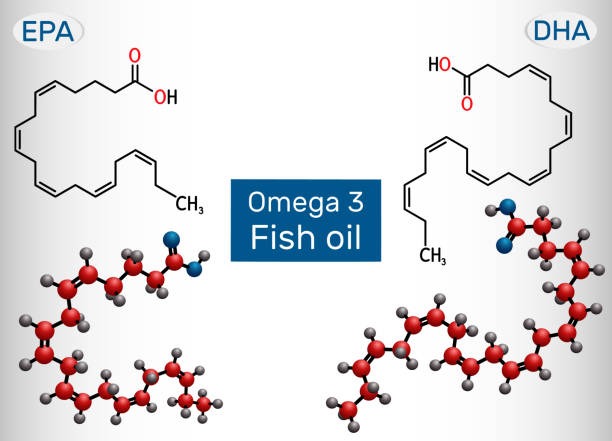

Omega 3 Fatty Acids
Eicosapentaenoic acid (EPA)
EPA has many potential health benefits, including:
Heart health: EPA can help lower the risk of heart disease by reducing triglycerides, LDL, and VLDL, and by reducing the damage lipids cause to blood vessels.
Inflammation: EPA has anti-inflammatory properties.
Brain health: Omega-3 fatty acids are important for brain development in children.
Weight stabilization: EPA may help increase lean body mass and stabilize weight.
EPA is also used as a prescription drug to reduce triglyceride levels. As a supplement, people commonly use EPA for heart disease, depression, and other conditions, but there is little scientific evidence to support many of these uses.
EPA is generally safe for most people when taken appropriately, but some people may experience side effects such as nausea, diarrhea, heartburn, skin rash, and joint pain.
Docosahexaenoic acid (DHA)
Docosahexaenoic acid (DHA) is an omega-3 fatty acid that is important for brain health, heart health, and other functions:
Brain health: DHA is essential for brain development in infants and for maintaining normal brain function in adults. It's found in the brain and retina, and is enriched in phospholipids.
Heart health: DHA supports good circulation and may help lower blood pressure.
Other functions: DHA may also help with learning ability.
DHA is found in cold-water fish, fish oil supplements, and algae oil. The body can also synthesize DHA from alpha-linolenic acid (ALA), but the conversion rate is low.
DHA may interact with other medications, so it's important to monitor your blood pressure, blood sugar, and bruising and bleeding if you take DHA:
Antihypertensive drugs
DHA might lower blood pressure, so taking it with these medications could cause blood pressure to drop too low.


